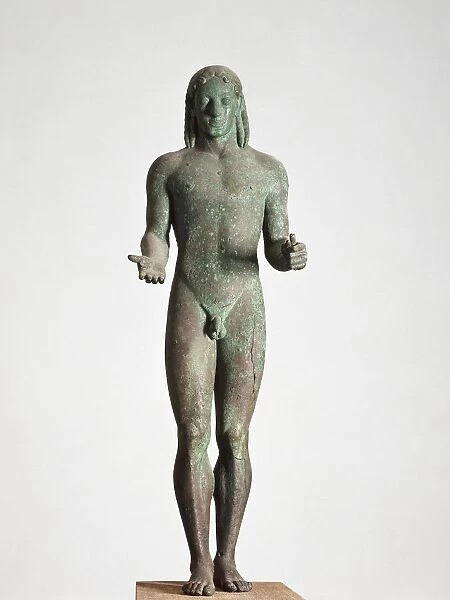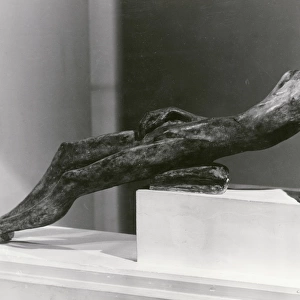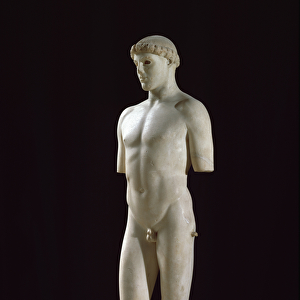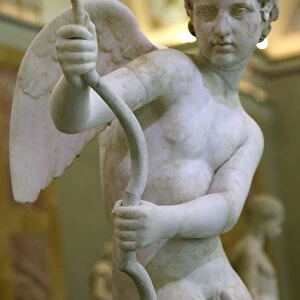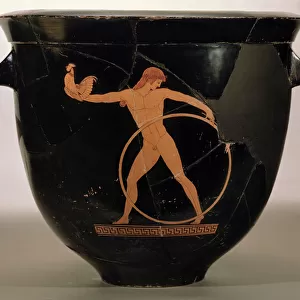Rights Managed > Universal Images Group (UIG) > Art > Archeology
Bronze statue known as Apollo of Piraeus
Filename: 940_18_11051949.jpg
Size: 2596 x 3461 (1.1MB)
Date: 10th March 2014
Source: Universal Images Group (UIG)
Source: De Agostini Picture Library
![]()

Wall Art and Photo Gifts from Universal Images Group (UIG)
Bronze statue known as Apollo of Piraeus
Greek civilization, 5th century b.C. Bronze statue known as Apollo of Piraeus, 530 b.C
Universal Images Group (UIG) manages distribution for many leading specialist agencies worldwide
Media ID 9475081
Ancient Greece Apollo Archeology Beauty Colored Background Gesturing Grey Background Harmony Long Hair Mythology Naked
EDITORS COMMENTS
This print showcases the magnificent Bronze statue known as Apollo of Piraeus, a remarkable artifact from Greek civilization dating back to the 5th century BC. Standing tall and proud, this full-length sculpture depicts Apollo, the god of light and music, in all his divine glory. With long flowing hair and a striking naked form, he exudes an aura of strength and beauty. In this front view studio shot against a colored background, every intricate detail is brought to life. The statue's gesture suggests an air of harmony and power that resonates with ancient mythology. As we gaze upon this piece of archeological wonder, we are transported back in time to Ancient Greece - a period steeped in rich history and religious devotion. The craftsmanship exhibited here is truly awe-inspiring; it exemplifies the skillful artistry prevalent during that era. This single object serves as a testament to the incredible talent possessed by ancient artisans who sought to immortalize their gods through their work. As we delve into our past through images like these, we gain insight into our shared human heritage. Let us marvel at this extraordinary representation of Apollo - a symbol not only of divinity but also an embodiment of artistic excellence that transcends time itself.
MADE IN THE USA
Safe Shipping with 30 Day Money Back Guarantee
FREE PERSONALISATION*
We are proud to offer a range of customisation features including Personalised Captions, Color Filters and Picture Zoom Tools
SECURE PAYMENTS
We happily accept a wide range of payment options so you can pay for the things you need in the way that is most convenient for you
* Options may vary by product and licensing agreement. Zoomed Pictures can be adjusted in the Cart.

